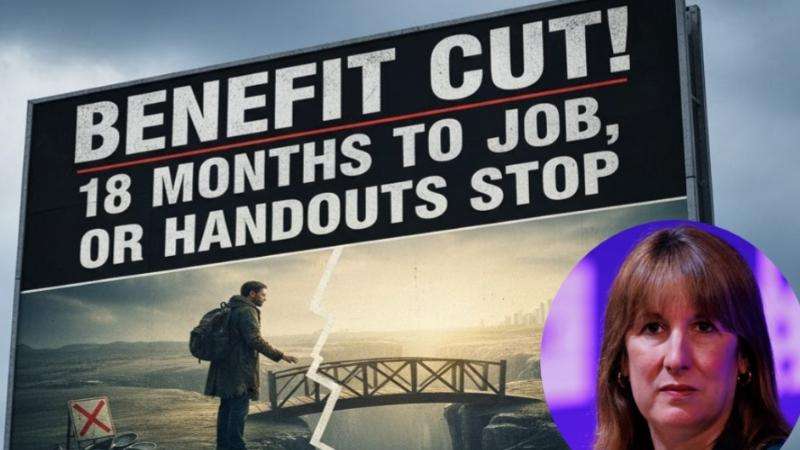In a landmark address to the Labour Party conference, Chancellor Rachel Reeves is set to unveil a sweeping reform of the UK’s welfare system, centred on a new “Youth Guarantee” that links state support directly to mandatory engagement. The core of the policy is a bold promise: the abolition of long-term youth unemployment, backed by the threat of benefit sanctions for 18-to-21-year-olds who refuse a guaranteed work or training offer, Daily Dazzling Dawn understands.
The proposal marks a major shift towards a "contribution"-based welfare state, putting the Government on a collision course with critics concerned about penalising young people amidst a tight jobs market.
The Future of Benefits: Work or Sanction
Under the new plan, every young person (aged 18 to 21) who has been claiming Universal Credit for 18 months without "earning or learning" will be guaranteed one of three pathways: a place in a college, an apprenticeship, or a paid work placement, complete with one-to-one support to find a job.
The crucial detail, confirmed by government sources, is the stick accompanying the carrot: claimants who turn down a suitable job or paid work placement without a "reasonable excuse" will face being stripped of their state handouts. This forms part of the Government's drive to ease the soaring \text{\textsterling} out-of-work benefits bill and inject "dignity" back into the lives of young people, a goal Ms Reeves is set to emphasise in her speech.
Future Changes-This "Youth Guarantee," overseen by Work and Pensions Secretary Pat McFadden, is part of a broader, ongoing push for welfare reform. Recent government announcements indicate an expanded network of support, including partnerships with organisations like Premier League football club charities and the doubling of 'Youth Hub' locations to over 200, aiming to provide localised skills and wellbeing support.
Furthermore, Mr McFadden's department has been rolling out the "Pathways to Work" programme, which has seen specialist Jobcentre staff redeployed to support those on sickness benefits, signaling that the 'tighter support and higher expectation' model is being applied across the entire benefits spectrum, not just to the young unemployed. The Work and Pensions Secretary has also publicly stated that the Government is tackling the "unsustainable" benefits bill, an ambition that suggests further, wider-ranging reforms to tighten eligibility for other benefits, potentially including disability support, are expected in the coming years, with full legislative changes possibly materialising in 2026 or later.
A Pledge to End 'Wasted Potential'-Ms Reeves is expected to draw a direct comparison to the last Labour government’s "New Deal for Young People," stating: "I will never be satisfied while too many people’s potential is wasted... We won’t leave a generation of young people to languish without prospects – denied the dignity, the security and the ladders of opportunity that good work provides."
The commitment comes as statistics show approximately one in eight 16-to-24-year-olds are not in education, work, or training (NEET). Critics, including Shadow Chancellor Sir Mel Stride, have already voiced concerns, arguing that the Government's own policies, such as a recent "jobs tax," have made it more expensive for businesses to hire. However, proponents of the new Youth Guarantee argue that the massive investment in skills and the ultimate goal of abolishing long-term youth unemployment justify the stricter approach to benefit conditionality.
The policy, which echoes a similar measure once proposed by former Prime Minister Rishi Sunak, solidifies the cross-party consensus that the welfare system must move away from a "passive safety net" towards an "activation system," firmly linking financial support to training and employment engagement. The debate now centres on whether this mix of compulsion and opportunity can successfully deliver on the promise of "real work, practical experience, and new skills" for a generation at risk of being frozen out of the labour market.








.svg)
